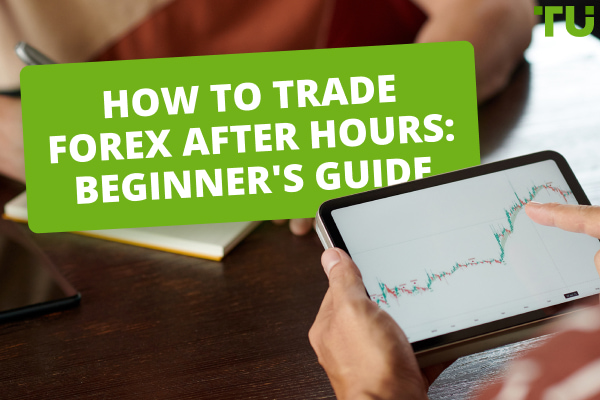Everything You Need To Know About Forex Card
A Forex card is a prepaid travel card loaded with foreign currency, facilitating transactions abroad. Pros include better exchange rates, enhanced security, and multi-currency support. Cons involve fees and limited acceptance. Costs vary based on issuance fees, reload fees, and transaction charges. Common use cases include short trips, multiple destinations, and controlling spending while traveling.
Ever wondered about those travel cards advertised for international trips? Those are Forex cards, a convenient and secure way to manage your foreign currency abroad. Forex cards offer a prepaid alternative to traditional cash and credit cards, but navigating their pros, cons, and fees can be tricky. This comprehensive guide will equip you with everything you need to know about Forex cards – from how they work and their advantages and disadvantages to their costs and ideal use cases.
Note:
The Forex card, or Forex travel card, offered has nothing to do with the international OTC foreign exchange market (Forex) or any exchange transactions. It is a variant of a prepaid multi-currency debit card for storage and settlement issued by different payment systems.
-
What is a Forex card used for?
A Forex card is used for making transactions in foreign currencies while traveling abroad, including purchases at stores, restaurants, and online, as well as ATM withdrawals.
-
Is Forex card free?
Forex cards typically come with fees such as issuance fees, transaction fees, and ATM withdrawal fees. While some providers may offer promotional deals or waive certain fees, Forex cards are not entirely free.
-
Do I need a bank account for a Forex card?
No, you do not need a bank account specifically for a Forex card. You can obtain a Forex card from banks or financial institutions by providing necessary documentation and loading funds onto the card.
-
Should I buy a Forex card?
Whether to buy a Forex card depends on your travel needs and preferences. If you're traveling internationally and prefer a secure and convenient payment method, a Forex card may be a suitable option.
How does a Forex card work?
A Forex card, also known as a travel card, functions as a prepaid card loaded with foreign currency for convenient use during overseas travels. Similar to a debit or credit card, it comes preloaded with the currency of the destination country, allowing for seamless transactions. Before starting on your journey, you can load the card with preferred currencies, typically major ones like USD or EUR, at the prevailing exchange rate offered by the issuing bank or financial institution. Once abroad, the Forex card operates like a debit card, facilitating purchases at establishments accepting Visa or Mastercard, and enabling hassle-free withdrawals of local currency from ATMs.
Forex cards offer the advantage of locked-in exchange rates upon loading, shielding users from currency fluctuations during their trips. However, it's important to consider various fees associated with Forex cards, including issuance fees, loading fees, transaction fees, ATM withdrawal fees, and currency conversion fees. Additionally, there are often limits on maximum loading amounts, daily spending, and ATM withdrawals, which users should be mindful of. Some Forex cards provide the option of reloading with additional funds while traveling, offering added convenience, albeit potentially incurring additional fees.
Best Forex brokers

Why do you need a Forex prepaid card?
A Forex prepaid card offers several advantages that make it a valuable companion for travellers. Here's why you might consider using one:
Convenience and security
Carrying a Forex prepaid card provides a convenient and secure way to manage money while traveling. It eliminates the need to carry large sums of cash, reducing the risk of theft or loss.
Budgeting and tracking
These cards serve as effective tools for managing money, allowing travellers to budget expenses and track spending more efficiently. This feature is particularly beneficial for those aiming to adhere to a specific budget during their travels.
Protection against loss
Many Forex cards come with complimentary insurance coverage against theft, loss, or misuse. This additional layer of security offers travellers peace of mind in case of unexpected incidents.
Multi-currency support
With access to multiple foreign currencies on a single card, travelers can easily conduct transactions in various countries without the hassle of carrying different currencies or worrying about exchange rate fluctuations.
Wider acceptance
Forex cards are widely accepted at establishments such as stores, restaurants, and hotels that accept card payments. Additionally, they can be used to withdraw local currency from ATMs, enhancing convenience during travel.
Use cases
Here are specific scenarios where a Forex card could be a suitable option:
-
Short trips: Ideal for short trips where carrying a large amount of cash isn't necessary.
-
Multiple destinations: If you're traveling to multiple countries with different currencies, a Forex card loaded with various currencies can simplify transactions.
-
Unfamiliarity with local currency: For travelers unsure about exchange rates or unfamiliar with the local currency, a Forex card offers peace of mind with its locked-in rate.
-
Controlling spending: Forex cards can assist in adhering to a budget by limiting spending to the pre-loaded amount, promoting financial discipline during travel.
What are the benefits of a Forex card?
Forex cards offer several benefits that make them a preferred choice for international travelers. Here's why you might consider using one:
Better exchange rates
Forex cards provide more favorable exchange rates compared to purchasing foreign currency in cash. Loaded with foreign currency at fixed exchange rates, they offer a cost-effective solution for international transactions.
Security features
Equipped with chip and pin technology, Forex cards offer enhanced security measures compared to carrying cash. In case of loss or theft, the card can be immediately blocked, and the balance frozen. Funds can then be transferred to a secondary card for continued use, ensuring peace of mind for travelers.
Multi-currency support
Unlike traditional debit or credit cards, Forex cards allow you to carry multiple foreign currencies simultaneously on a single card. This feature proves beneficial for travelers visiting multiple countries, eliminating the need to carry various currency notes.
Comparison with other types of cards
Debit and credit cards
Forex cards outperform debit and credit cards in terms of exchange rates and transaction fees when used internationally. Additionally, they offer advanced security features like chip and pin technology, making them a safer option for transactions abroad.
Cash
Forex cards negate the necessity of carrying large sums of cash while traveling, thereby reducing the risk associated with physical currency theft or loss. Furthermore, they facilitate better money management through online access and monthly statements, ensuring efficient expense tracking during travel.
What are the disadvantages of Forex cards?
While Forex cards offer advantages, it's essential to be aware of their limitations:
Fees
Forex cards often entail various fees such as issuance fees, loading fees, transaction fees, ATM withdrawal fees, and currency conversion fees. These fees can accumulate, diminishing the benefit of the locked-in exchange rate.
Limited acceptance
Although widely accepted, Forex cards may not be recognized by all merchants, particularly smaller shops or local vendors in certain countries. It's advisable to have a backup option like a credit card or some local currency on hand.
Inflexibility
Once you load a specific currency onto the card, you're bound to that exchange rate. If the exchange rate fluctuates favourably, you won't reap the benefits. Additionally, reloading the card while traveling can be inconvenient and may involve extra fees.
Potential for lost or stolen funds
While most cards offer fraud protection, losing a Forex card could result in the loss of pre-loaded funds, posing a financial risk.
Comparison with other types of cards
Credit and debit cards
While Forex cards offer better exchange rates and security features, credit and debit cards are generally more universally accepted. They may also offer additional perks like reward points or cashback, which Forex cards lack.
Cash
Unlike physical currency, Forex cards may face limited acceptance in certain areas and may incur fees for ATM withdrawals or reloading. However, they provide enhanced security features and protection against theft or loss compared to carrying cash.
How to get a Forex card?
Acquiring a Forex card is a straightforward process. Here's a step-by-step guide:
Choose a provider
Begin by researching and selecting a reputable financial institution or Forex service provider offering Forex cards. Consider factors like exchange rates, fees, and card features before making a decision.
Apply online or in-person
Visit the provider's website or branch to initiate the application process. Fill out the application form with your personal details, travel information, and currency preferences.
Submit documents
Prepare necessary documents such as a valid passport, visa, air tickets, and proof of address. Different providers may have specific document requirements, so ensure compliance.
Load currency
Decide on the currencies you wish to load onto the card. Transfer the desired amount in your local currency to load the Forex card with multiple foreign currencies.
Activate the card
Upon approval of your application and loading of funds onto the card, activate it according to the provider's instructions. This may involve setting a PIN or activating online access.
When purchasing a Forex card, you typically need to submit the following documents:
-
Valid passport
-
Visa
-
Air tickets
-
Proof of address
Ensure all documents are up-to-date and meet the provider's verification requirements. The expenses associated with a Forex card can vary depending on the provider and specific card features. Common charges may include issuance fees, reload fees, transaction fees, and ATM withdrawal charges. It's advisable to inquire about detailed cost information from the chosen provider before obtaining a Forex card.
TU expert Oleg Tkachenko suggests not just focusing on the headline exchange rate offered by a Forex card provider. Make sure to factor in all the fees involved to find the most cost-effective option for your trip. Sometimes, the card with a slightly less favorable exchange rate might have lower fees, making it the better deal overall.
Conclusion
In conclusion, Forex cards offer a convenient and secure means of managing finances while traveling internationally. Despite their advantages, it's essential to weigh the pros and cons before opting for this payment solution.
The benefits of Forex cards, including better exchange rates, enhanced security features, multi-currency support, and ease of use, make them an attractive option for globetrotters.
However, it's crucial to consider the drawbacks, such as fees, limited acceptance at certain merchants, inflexibility with exchange rates, and the potential risk of lost or stolen funds.
Team that worked on the article
Chinmay Soni is a financial analyst with more than 5 years of experience in working with stocks, Forex, derivatives, and other assets. As a founder of a boutique research firm and an active researcher, he covers various industries and fields, providing insights backed by statistical data. He is also an educator in the field of finance and technology.
As an author for Traders Union, he contributes his deep analytical insights on various topics, taking into account various aspects.
Dr. BJ Johnson is a PhD in English Language and an editor with over 15 years of experience. He earned his degree in English Language in the U.S and the UK. In 2020, Dr. Johnson joined the Traders Union team. Since then, he has created over 100 exclusive articles and edited over 300 articles of other authors.
The topics he covers include trading signals, cryptocurrencies, Forex brokers, stock brokers, expert advisors, binary options. He has also worked on the ratings of brokers and many other materials.
Dr. BJ Johnson’s motto: It always seems impossible until it’s done. You can do it.
Mirjan Hipolito is a journalist and news editor at Traders Union. She is an expert crypto writer with five years of experience in the financial markets. Her specialties are daily market news, price predictions, and Initial Coin Offerings (ICO). Mirjan is a cryptocurrency and stock trader. This deep understanding of the finance sector allows her to create informative and engaging content that helps readers easily navigate the complexities of the crypto world.










